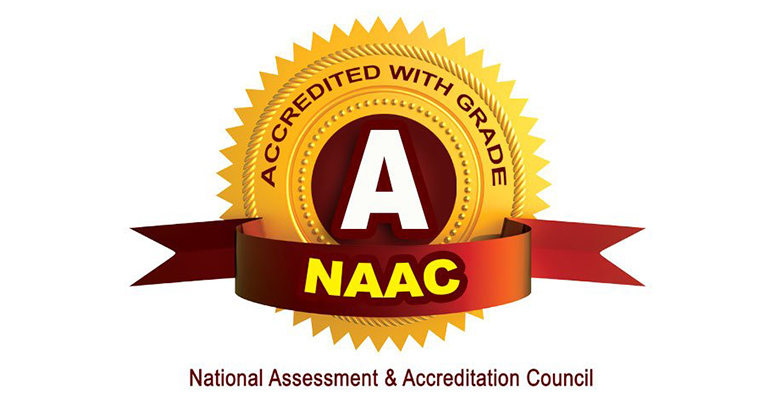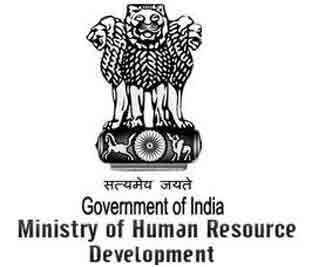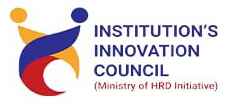Civil Engineering Programmes
| Course Name | : | Civil Engineering |
|---|---|---|
| Type | : | Under Graduation |
| Year of Approval | : | 1960 |
| Intake | : | 120 |
| Accreditations | : | NBA |
Program Educational Objectives (PEOs)
| PEO1 | PEO1: The graduate will be sucessful professionally and contribute to core civil engineering construction projects, infrastructure projects, alternative construction technology projects, green buildings towards environmental sustainability for academic domain as well as for research and pursue higher studies |
|---|---|
| PEO2 | PEO2: The graduate will be professionally sound in broad area of knowledge of various dimensions of civil engineering and allied fields |
| PEO3 | PEO3: The graduate will be a team leader / effective team member with ethical values, versatile, quick learner, adapt to given professional context with lifelong learning capability |
Program Specific Outcomes (PSOs)
| PSO1 | PSO 1: The Gradates will demonstrate the ability to design a civil engineering system, component or the process to meet desired project needs |
|---|---|
| PSO2 | PSO 2: Graduates will be familiar with modern civil engineering professional software tools and demonstrate their ability in applying them for the solution of design situations. |
Program Outcomes (POs)
| PO1 | PO1: Engineering Knowledge: Apply the knowledge of mathematics, science, engineering fundamentals, and an engineering specialization to the solution of complex engineering problems. |
|---|---|
| PO2 | PO2: Problem Analysis: Identify, formulate, review research literature, and analyze complex engineering problems reaching substantiated conclusions using first principles of mathematics, natural sciences, and engineering sciences. |
| PO3 | PO3: Design / Development of Solutions: Design solutions for complex engineering problems and design system components or processes that meet the specified needs with appropriate consideration for the public health and safety, and the cultural, societal, and environmental considerations. |
| PO4 | PO4: Conduct Investigations of Complex Problems: Use research-based knowledge and research methods including design of experiments, analysis and interpretation of data, and synthesis of the information to provide valid conclusions. |
| PO5 | PO5: Modern Tool Usage: Create, select, and apply appropriate techniques, resources, and modern engineering and IT tools including prediction and modeling to complex engineering activities with an understanding of the limitations. |
| PO6 | PO6: The Engineer and Society: Apply reasoning informed by the contextual knowledge to assess societal, health, safety, legal and cultural issues and the consequent responsibilities relevant to the professional engineering practice. |
| PO7 | PO7: Environment and Sustainability: Understand the impact of the professional engineering solutions in societal and environmental contexts, and demonstrate the knowledge of, and need for sustainable development. |
| PO8 | PO8: Ethics: Apply ethical principles and commit to professional ethics and responsibilities and norms of the engineering practice. |
| PO9 | PO9: Individual and Teamwork: Function effectively as an individual, and as a member or leader in diverse teams, and in multidisciplinary settings. |
| PO10 | PO10: Communication: Communicate effectively on complex engineering activities with the engineering community and with society at large, such as, being able to comprehend and write effective reports and design documentation, make effective presentations and give and receive clear instructions. |
| PO11 | PO11: Project Management and Finance: Demonstrate knowledge and understanding of the engineering and management principles and apply these to one’s own work, as a member and leader in a team, to manage projects and in multidisciplinary environments. |
| PO12 | PO12: Life-long Learning: Recognize the need for, and have the preparation and ability to engage in independent and life-long learning in the broadest context of technological change. |
| Course Name | : | Computer Aided Design of Structures (CADS) |
|---|---|---|
| Type | : | Post Graduation |
| Year of Approval | : | 1993 |
| Intake | : | 20 |
Program Specific Outcomes (PSOs)
| PSO1 | Program Specific Outcomes (PSOs) (Source - Lead Society: American Society of Civil Engineers (ASCE) - Program Specific Criteria) PSO 1: The Gradates will demonstrate the ability to design a civil engineering system, component or the process to meet desired project needs PSO 2: Graduates will be familiar with modern civil engineering professional software tools and demonstrate their ability in applying them for the solution of design situations. |
|---|
Program Outcomes (POs)
| PO1 | PROGRAM OUTCOMES (POs) Engineering Graduates will be able to: PO1: Engineering Knowledge: Apply the knowledge of mathematics, science, engineering fundamentals, and an engineering specialization to the solution of complex engineering problems. PO2: Problem Analysis: Identify, formulate, review research literature, and analyze complex engineering problems reaching substantiated conclusions using first principles of mathematics, natural sciences, and engineering sciences. PO3: Design / Development of Solutions: Design solutions for complex engineering problems and design system components or processes that meet the specified needs with appropriate consideration for the public health and safety, and the cultural, societal, and environmental considerations. PO4: Conduct Investigations of Complex Problems: Use research-based knowledge and research methods including design of experiments, analysis and interpretation of data, and synthesis of the information to provide valid conclusions. PO5: Modern Tool Usage: Create, select, and apply appropriate techniques, resources, and modern engineering and IT tools including prediction and modeling to complex engineering activities with an understanding of the limitations. PO6: The Engineer and Society: Apply reasoning informed by the contextual knowledge to assess societal, health, safety, legal and cultural issues and the consequent responsibilities relevant to the professional engineering practice. PO7: Environment and Sustainability: Understand the impact of the professional engineering solutions in societal and environmental contexts, and demonstrate the knowledge of, and need for sustainable development. PO8: Ethics: Apply ethical principles and commit to professional ethics and responsibilities and norms of the engineering practice. PO9: Individual and Teamwork: Function effectively as an individual, and as a member or leader in diverse teams, and in multidisciplinary settings. PO10: Communication: Communicate effectively on complex engineering activities with the engineering community and with society at large, such as, being able to comprehend and write effective reports and design documentation, make effective presentations and give and receive clear instructions. PO11: Project Management and Finance: Demonstrate knowledge and understanding of the engineering and management principles and apply these to one’s own work, as a member and leader in a team, to manage projects and in multidisciplinary environments. PO12: Life-long Learning: Recognize the need for, and have the preparation and ability to engage in independent and life-long learning in the broadest context of technological change. |
|---|







